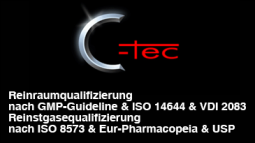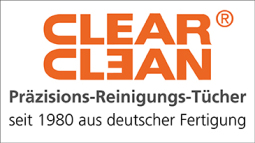- Union, Association, Cluster
The chemical-pharmaceutical industry has presented its results for 2023
– Production drop by 8 percent
– Sales decline by 12 percent
– Forecast 2024: further sales reduction
– Policy change is needed, focusing on a competitive economy
A difficult year is coming to an end for the chemical-pharmaceutical industry. Hopes of an economic upswing have not materialised. Markus Steilemann, President of the German chemical industry association Verband der Chemischen Industrie e. V. (VCI), comments on the situation: “We are in the middle of a long, deep trough. And it is still unclear how long we must persist to pass it.” A fast upturn is not in sight.
Germany is in a crisis which is not only affecting the chemical industry alone. The entire German economy is suffering from the weak business climate and structural problems. In order to get Germany back to the road of success, the association takes the view that a profound policy change and a focus on a competitive economy are urgently needed – as this will secure the basis for a sustainable future. Steilemann emphasises: “The endless discussion and the outcome of the budget agreement dramatically underline that politicians need to wake up at long last so that the prosperity model Germany does not suffer failure.”
Drop in chemical production by 11 percent
2023 was a bad year for the industry. Overall, chemical and pharmaceutical production fell by 8 percent. When excluding the pharma business, the decline was 11 percent. Companies increasingly lacked orders. With an average of around 77 percent, the industry’s capacities were underutilised. This means that production has been below the economically necessary basic capacity utilisation of 82 percent for nine quarters.
Manufacturers of inorganic basic chemicals as well as soaps, detergents and cosmetics cut their production by 10 percent. The output of fine and specialty chemicals fell by 4 percent. After the boom for vaccines, the pharma sector too struggled with adverse location conditions and recorded a reduction by 3 percent.
At around 230 billion euros, the industry’s sales were 12 percent lower than back in 2022. The drop was particularly marked in domestic business were sales declined by 16 percent to 86 billion euros. Foreign sales amounted to 144 billion euros and were 10 percent below the previous year. Also, falling prices of chemicals contributed to the sales decrease. In 2023, producer prices for chemical-pharmaceutical products were on average around 1 percent lower than one year earlier.
Outlook 2024: Recovery is long in coming
At the end of 2023, the industry remains in recession mood. Both the current business situation and the expectations for the next months are negative. Thus, there should be a further lack of orders in chemicals business. In this setting, the VCI does not anticipate chemical production to be back on the increase in 2024. Sales are expected to fall by 3 percent.
This forecast is endorsed by the results of the latest membership survey: Companies are not hoping for an upswing in the short term. 45 percent see an improvement in 2025 at the earliest.
40 percent of companies are complaining about falling profits
The sales decline, falling sales prices and high production costs put strong pressure on the profits of companies. According to the most recent VCI membership survey, almost 40 percent are complaining about significant profit drops. Roughly 15 percent of companies are already in the red.
At the same time, the continuously difficult state of business is forcing companies to make painful adjustments. Steilemann warns: “The longer this situation lasts, the more we must expect the shutdown of further plants.” Meanwhile, abandoning loss-making business areas, investment shifts abroad or staff reductions can no longer be ruled out.
Germany needs an “Offensive 2030”
Industry also needs competitive energy pricing for a competitive economy and a green transformation. This means in the short run: burden-easing on energy prices. And in the long run: high speed in the rebuilding of the energy system – widening the offer of electricity, expanding grids and creating reserve capacities with backup power plants and energy storage facilities. But for the electricity price package, which is still being planned under the agreement in the budget dispute, merely the status quo is maintained.
However, the energy issue is just one of many unresolved problems. The list of shortcomings continues to include the dilapidated infrastructure, the skills shortage or excessive bureaucracy and regulation.
Steilemann demands: “We have to rethink Germany, and we need an Offensive 2030.” After all, a competitive economy secures the basis for a sustainable future. This is the only way to achieve the key political goals of prosperity, green transformation, social and welfare state as well as sound public finance.
It emerges from the VCI membership survey that companies are fighting the crisis with all their strength. 70 percent have announced that they will focus even more strongly on efficiency measures. Every second company is planning to intensify its innovation efforts. 30 percent want to rapidly drive forward the ecological transformation. VCI President Steilemann states: “We are a location with immense potential, and we are reaching out to politicians to now tackle the urgently needed structural reforms with full vigour.”
The German federal government should take the following steps:
– Free the economy from bureaucracy and prevent further burdens through a moratorium.
– Massively speed up approvals and licensing and transform Germany into a digital country. With a modern administration, other nations realise savings of 2 percent of their gross domestic product.
– Prioritise in public spending. Here, cost-benefit considerations should be decisive and not political ideology.
Verband der Chemischen Industrie e.V. (VCI)
60329 Frankfurt am Main
Germany









